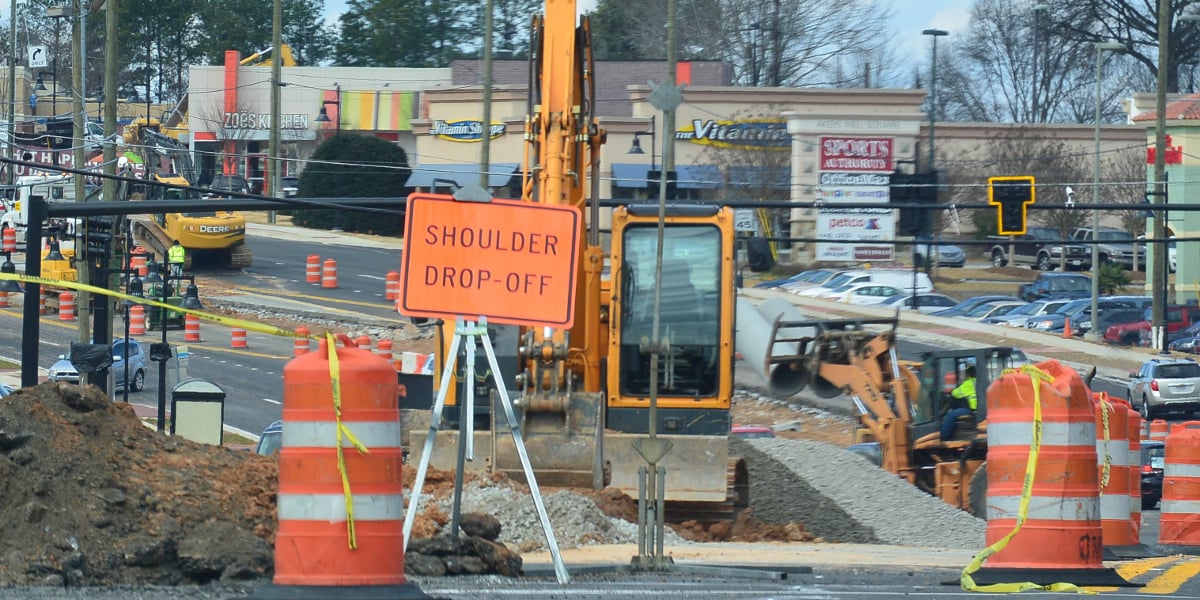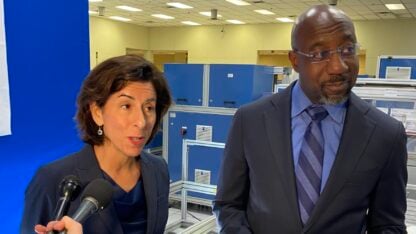Ga. Road Construction Bill Could Threaten Archaeological Finds

Al Such / WABE
A proposed law that would streamline road construction in Georgia is running into resistance from archaeologists.
They say it would threaten unknown grave sites, historical objects and ancient artifacts that have yet to be unearthed. It also could take away one of the key ways archaeologists do their work: As a part of the environmental review that’s currently required in the state.
The bill, SB 346, would exempt Georgia Department of Transportation projects that cost up to $100 million from going through the whole Georgia Environmental Policy Act, which requires studies, reviews, long documents and time.
“What I’m trying to do is expedite projects, and get a shovel in the ground as quickly as possible,” said Georgia Sen. Brandon Beach, who sponsored the legislation. “I want the taxpayers’ money being spent as quickly as possible to reduce congestion and increase mobility.”
Beach said he wants to eliminate the need for consultants and extra paperwork, and to pave the way for spending the billion dollars GDOT expects to raise from the passage of a transportation funding bill last year.
“I used to serve on the DOT board before I came to the Senate, and every time I had a project that was delayed, you could peel the onion back, and it was because of the paperwork going through the process,” he said. “It just got shuffled from desk to desk to desk.”
Some environmental studies would still happen if the bill passed, but archaeologists are concerned because they say surveys for archaeological resources would be eliminated. A requirement to plan around a known cemetery or burial would still be in place, but not surveys to search for unknown burials.
“There’s so many treasures about Georgia’s past that lie underground, and we won’t know that they’re there,” said Richard Moss, the president of the Georgia Council of Professional Archaeologists. “Civil War battlefields where great men on both sides fought and died, sometimes their bones lie there. Indian mounds. Historic African-American cemeteries that don’t have any kind of markings.”
Even if it’s hard to believe there’s much left to find, Jim Langford, past-president of the Society for Georgia Archaeology and the Council of Professional Archaeologists, said it is absolutely possible there are still big discoveries out there.
“We have found new villages just in the past five years and 10 years. The Spanish visited in 1540, other village in 1560,” Langford said. “We know that the French and the Spanish touched the Georgia coast in 1516. This is some of the earliest history of the North American continent.”
And there is still more to learn about Native Americans’ lives before and after Europeans arrived, he said.
“We don’t have a big staff of archaeologists in Georgia who go around uncovering new sites all the time,” he said. “And so we learn a tremendous amount from rights of way, either pipelines or highways, power lines, those kinds of things that have to be surveyed.”
Even if the bill passes, any projects receiving federal funding would still be subject to federal requirements for surveys. The bill is currently being considered by the Georgia House Highway Regulations Subcommittee.
9(MDAxODM0MDY4MDEyMTY4NDA3MzI3YjkzMw004))






